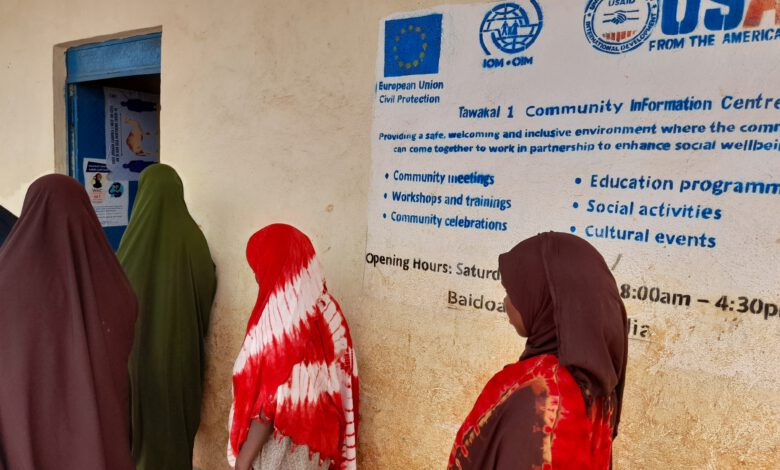
Recent flash flooding and the worst locust invasion in a decade have left many families without access to basic health services, clean water, shelter, and regular food supplies. Approximately two million people grappling with poor housing conditions, many of whom are displaced and remain vulnerable to recurrent climate shocks and eviction.
“Somalia has one of the largest internally displaced populations (IDPs) in the world. Years of armed conflict and instability, coupled with an ongoing climate crisis in which extremely rainy periods are followed by severe droughts, have forced over 2.6 million people to seek refuge in other areas of the country,” said IOM’s Programme Manager, Maria Celeste Sanchez Bean.
Many displaced families must start their lives over again with little to nothing left, bringing with them only the belongings they can carry.
Madina’s family was one of those affected by conflict, drought and food insecurity in south-west Somalia. In April this year, they decided it was impossible to continue living in their small village. Madina walked for three days with her husband and seven children to a displacement site in Baidoa in search of protection and assistance.
“I was in a desperate situation, I did not know what to feed my children,” Madina said.
When they arrived to the site, Madina’s family built a small makeshift shelter covered with pieces of worn-out clothes. She then went to the information centre, run by the International Organization for Migration (IOM), to report her lack of food and poor shelter conditions.
The response was immediate and IOM and other partners provided the family with a more durable shelter and food to help them start their new life.
The response was immediate and IOM and other partners provided the family with a more durable shelter and food to help them start their new life.
When displaced individuals like Madina arrive to an IDP site, the first place where they seek help or information is at an information centre located within their settlement. IOM runs 14 information centres in major displacement sites in the cities of Doolow, Kismayo and Baidoa – which is home to the largest number of displaced populations in the country after the capital Mogadishu.
These centres have greatly improved the community’s access to information about services available from IOM and partners and have played a key role since the outbreak of the pandemic.







